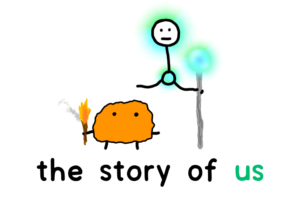My favorite long-form essays
These are obviously much longer than an average article. If you’re reading this on your phone, bookmark it for later, when you can set aside a couple of hours!

Over the past decade, the book has increasingly become a stale format. Among other issues, publishers always want books to be about 250 pages regardless of how long it takes to explain the core ideas, which leads to a lot of fluff. Many writers have taken to publishing long-form essays online instead, where there are no conventions or restrictions limiting them.
I wanted to share some of my favorite ones:
👨👧👦 The Story of Us - Tim Urban 👨👧👦
In this series, Tim writes about a worrisome trend of polarization in our society - the way people are acting, and the way the media is acting, and the way the government is acting. He’s spent three years working on a new metaphorical language we can use to think and talk about our societies and the people inside of them. Tim Urban is my original writing inspiration, with his uncanny ability to break down complex topics in a casual way using new terms, metaphors, and lots of badly drawn pictures.
👍 Status as a Service - Eugene Wei 👍
This long essay is a deep dive into how it’s human nature to seek social capital (or status) and how social networks are built to create “status games”. He observes that without for competition for relative status (more followers or likes), there would be no point in playing the game at all. All notable social networks have a “proof of work” that depends on some actual skill to differentiate among the users:
For Facebook it was posting some witty text-based status update. For Instagram, it was posting an interesting square photo. For Vine, an entertaining 6-second video. For Twitter, it was writing an amusing bit of text of 140 characters or fewer. Pinterest? Pinning a compelling photo.
🌊 Breaking Smart - Venkatesh Rao 🌊
This series argues that software is the third major soft technology to appear in human civilization, after written language and money. It explores how we might think about its impact and adapt intelligently to new technological possibilities. Venkatesh observes that the old social order based on credentialism (degrees, certifications, and regulations) is crumbling. Software has ushered a new age of leverage, where young people today do not have to “wait their turn” and have unprecedented opportunity to create new economic, social, and political wealth.
—
These are obviously much longer than an average article. If you’re reading this on your phone, bookmark it for later, when you can set aside a couple of hours!
Friday Brainstorm Newsletter
For more, join 300+ curious people subscribed to the Friday Brainstorm newsletter. It’s one email a month with the most interesting ideas I've found related to science and health.